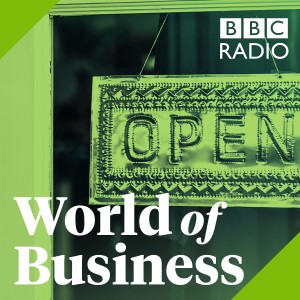
Tunisia has seen huge changes in its media industry in the seven years since its revolution and move to democracy. Before 2011, the country’s TV and radio were tightly controlled by the regime of President Ben Ali, one of the most restrictive in the Arab world. Now the media has opened up to a whole range of new players and there is significant freedom of speech, leading many to hold Tunisia up as the Arab Spring’s success story. But while people are able to say what they want in public, this doesn’t necessarily translate into a free and fair media. There are still concerns the state TV broadcaster is influenced by government and doesn’t reflect the real issues affecting Tunisians. Private TV and radio is increasingly finding its way into the hands of big business and politicians, and the media regulator is struggling to rein in those who break the rules. On top of this, there is concern that the security services haven’t quite shaken off their old ways, and are still trying to prevent journalists doing their work. In the first of a four part series on the media around the world, Marie Keyworth is in Tunisia to explore what has happened to Tunisia’s new found TV and radio freedom after its revolution.
Presenter: Marie Keyworth
Producer: John Murphy
Picture Credit: BBC
view more
More Episodes
Raghuram Rajan
 2014-05-23
2014-05-23
 2014-05-23
2014-05-23
In Business: Packaging in a Pickle
 2014-05-22
2014-05-22
 2014-05-22
2014-05-22
Sharing Economy 2: Rachel Botsman
 2014-05-16
2014-05-16
 2014-05-16
2014-05-16
In Business: Price Conscious
 2014-05-15
2014-05-15
 2014-05-15
2014-05-15
In Business: The Sharing Economy
 2014-05-08
2014-05-08
 1
1
 2014-05-08
2014-05-08
 1
1
In Business: Battery Matters
 2014-05-01
2014-05-01
 2014-05-01
2014-05-01
In Business: Has the book a future?
 2014-04-17
2014-04-17
 2014-04-17
2014-04-17
Engineers in the City
 2014-04-11
2014-04-11
 2014-04-11
2014-04-11
In Stradivari's footsteps
 2014-04-05
2014-04-05
 2014-04-05
2014-04-05
In Business: The New Manufacturing
 2014-04-03
2014-04-03
 2014-04-03
2014-04-03
Business in the Veneto
 2014-03-29
2014-03-29
 2014-03-29
2014-03-29
Creative Economy
 2014-03-22
2014-03-22
 2014-03-22
2014-03-22
Ambitious Korea
 2014-03-15
2014-03-15
 2014-03-15
2014-03-15
Korea Change
 2014-03-08
2014-03-08
 2014-03-08
2014-03-08
In Business: Cork
 2014-01-23
2014-01-23
 2014-01-23
2014-01-23
In Business: Cyber Town Malvern
 2014-01-16
2014-01-16
 2014-01-16
2014-01-16
In Business: Stitch in Time
 2014-01-09
2014-01-09
 2014-01-09
2014-01-09
In Business: The Music Industry
 2014-01-02
2014-01-02
 2014-01-02
2014-01-02
Global Look Ahead 2014
 2013-12-28
2013-12-28
 2013-12-28
2013-12-28
012345678910111213141516171819
Create your
podcast in
minutes
- Full-featured podcast site
- Unlimited storage and bandwidth
- Comprehensive podcast stats
- Distribute to Apple Podcasts, Spotify, and more
- Make money with your podcast
It is Free
- Privacy Policy
- Cookie Policy
- Terms of Use
- Consent Preferences
- Copyright © 2015-2024 Podbean.com



